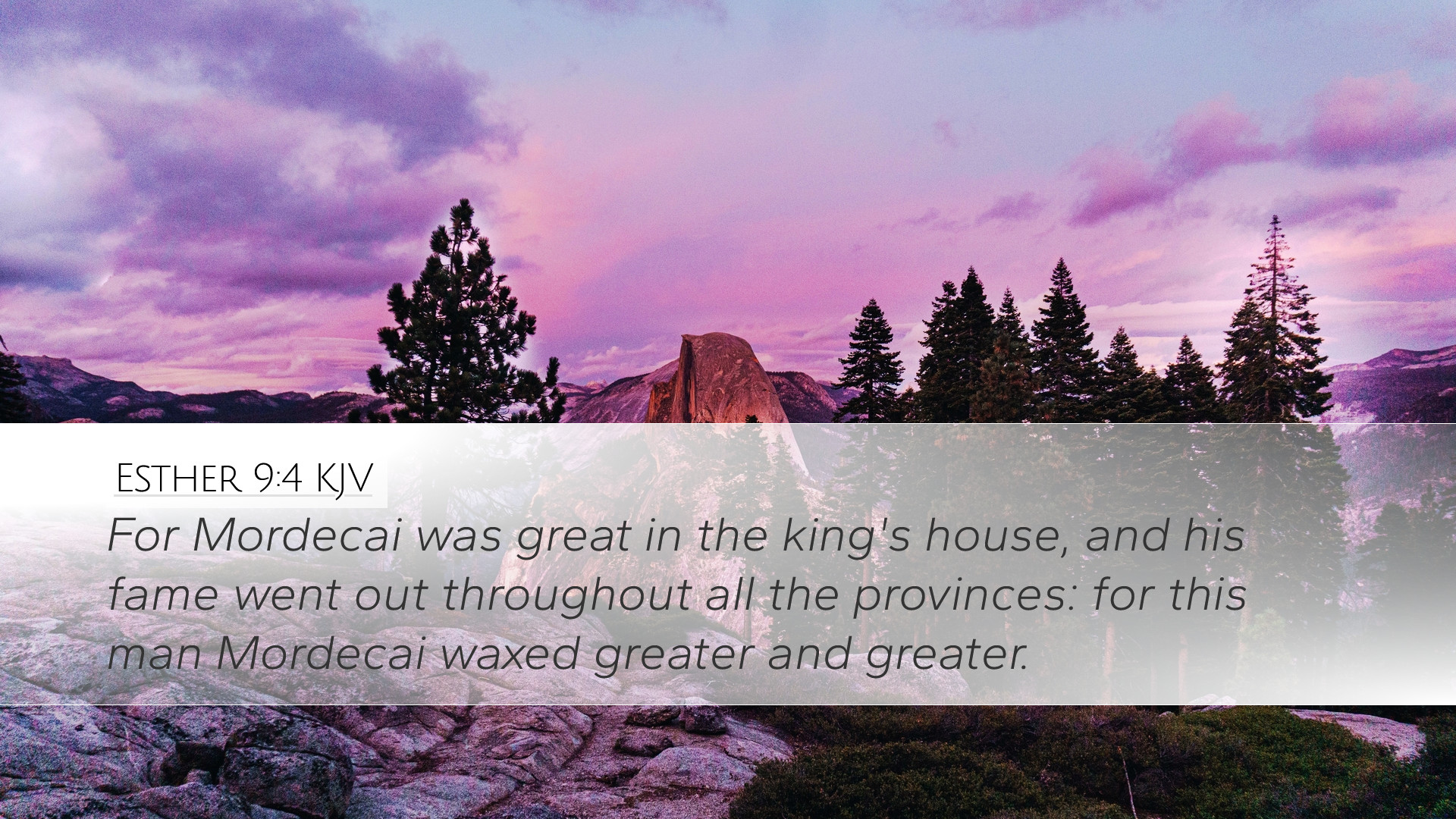Commentary on Esther 9:4
Verse Context: Esther 9:4 states, "For Mordecai was great in the king's palace, and his fame went out throughout all the provinces; for this man Mordecai waxed greater and greater." This verse occurs after the deliverance of the Jewish people from the plot of Haman and illustrates the elevation of Mordecai, which serves as a pivotal point in the narrative.
Historical Significance
Mordecai's Rise to Prominence: The verse emphasizes the divine providence involved in Mordecai's rise. Commentators like Matthew Henry highlight that Mordecai's promotion is not merely a personal victory but a significant point in God's overarching plan for His people. His position in the king's palace is testament to God's faithfulness in fulfilling promises to Israel.
Theological Insights
- God's Sovereignty: This verse illustrates the sovereignty of God in elevating Mordecai amidst adversity. Albert Barnes notes that Mordecai’s success is a clear demonstration of how God can turn situations around for His purposes. The rise of a Jew in a Persian court symbolizes hope and vindication for the Jewish people.
- Public Recognition: The phrase "his fame went out throughout all the provinces" suggests that Mordecai’s influence extended well beyond personal accolades. As Adam Clarke elaborates, this is significant in the context of Jewish identity and pride, especially following a period of impending annihilation.
- Character Development: Mordecai’s increasing greatness emphasizes not only his political acumen but also his virtuous character. Commentators remark that his humility and faithfulness were key to his elevation, which serves as an example for believers in maintaining integrity in positions of influence.
Literary Structure
Emphasis on Growth: The phrase "waxed greater and greater" denotes an image of organic growth, symbolizing God’s hand in a believer’s life. Matthew Henry reflects that this growth is not only physical but also spiritual, as is evident in Mordecai’s leadership and courage throughout the narrative.
Practical Applications
- Faith in Trials: The deliverance marked by Mordecai's rise serves as a powerful reminder for pastors and theologians that faithfulness during trials can lead to divine elevation. It’s a call to remain steadfast in one’s commitments and trust in God's timing.
- Role of Leadership: Mordecai represents a model of leadership that is rooted in service and righteousness. Albert Barnes encourages modern leaders to draw lessons from Mordecai’s life, prioritizing the well-being of their communities over personal advancement.
- Covenant Identity: The news of Mordecai's prominence can inspire Jewish pride and identity. For modern theologians, it underscores the importance of understanding one’s heritage and the role of God in shaping communal destinies.
Conclusion
Esther 9:4 encapsulates the themes of divine providence, leadership, and growth. It serves as an exhortation for believers, particularly leaders, that God elevates those who remain faithful to Him through adversity. This passage not only contributes to the narrative of Esther but also extends its theological ramifications to daily life as believers engage with their communities and influence the world around them.


